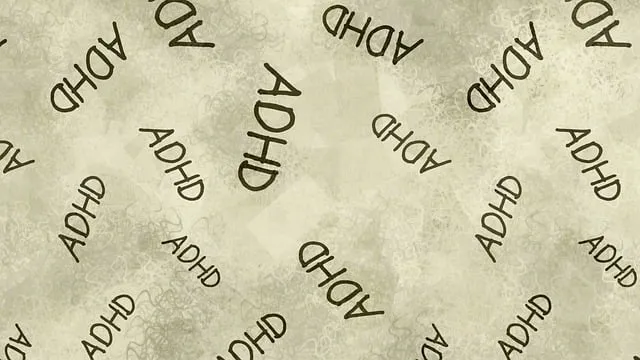Prioritizing mental wellness involves using self-assessment tools to evaluate emotional well-being, reduce stigma, and access resources like those offered by Kaiser Arvada. Ideal tools include detailed symptoms lists, intuitive interfaces, and communication strategies for accurate evaluations. Integrated with Kaiser Arvada's services, these tools empower users through personalized mental health management, therapy, counseling, workshops, podcasts, and public awareness campaigns. Effectiveness is measured via self-report questionnaires and participant feedback, ensuring tools support individuals' mental wellness journeys and enhance access to services like those available at Kaiser Arvada.
Mental wellness self-assessment tools play a pivotal role in individualizing and enhancing access to mental health care. This article explores the development of such tools, focusing on their utility in identifying mental health concerns and guiding treatment plans. We delve into key components for effective assessments, integration with Kaiser Arvada’s services, and best practices for implementation. Additionally, we discuss measuring success through impact evaluation, emphasizing how these tools can empower individuals to take charge of their mental wellness and access appropriate Kaiser Arvada services.
- Understanding the Need for Self-Assessment Tools in Mental Health
- Key Components of an Effective Mental Wellness Self-Assessment Tool
- Integrating Self-Assessment with Kaiser Arvada's Services and Resources
- Best Practices for Developing and Implementing Self-Assessment Tools
- Measuring Success: Evaluating the Impact of Mental Wellness Self-Assessments
Understanding the Need for Self-Assessment Tools in Mental Health

In today’s fast-paced world, understanding and prioritizing mental wellness is more crucial than ever. Self-assessment tools play a pivotal role in this process by providing individuals with an avenue to evaluate their emotional well-being and mental health status. These tools empower folks to take charge of their psychological well-being, especially when navigating the complex landscape of mental healthcare services. Many people struggle to access how to get mental health services through Kaiser Arvada or other providers due to a lack of awareness, stigma, or fear of judgment. Self-assessment can be the first step towards seeking professional help, offering a gentle introduction into discussions about emotional regulation, confidence boosting, and overall mental wellness.
The development of effective self-assessment tools for mental health is a game-changer, especially in communities where mental healthcare resources may be limited or hard to access. By utilizing these tools, individuals can identify potential issues early on, promoting proactive measures to enhance their mental wellness. Moreover, they provide valuable insights that can guide the creation and customization of personalized strategies, ensuring tailored support for diverse psychological needs, whether it’s managing stress, improving emotional resilience, or fostering a positive self-image.
Key Components of an Effective Mental Wellness Self-Assessment Tool

An effective mental wellness self-assessment tool should incorporate several key components to ensure accurate evaluation and support. Firstly, it must include a comprehensive list of symptoms and behaviors related to various mental health conditions, allowing individuals to reflect on their experiences accurately. This aspect is crucial for early detection, especially when considering access to mental health services through Kaiser Arvada. The tool should also offer a user-friendly interface that guides users through the assessment process, ensuring they understand each question and feel comfortable sharing personal information.
Additionally, integrating communication strategies within the self-assessment can enhance its effectiveness. Encouraging open dialogue about mental wellness promotes awareness and fosters connections to available resources, such as those offered by Kaiser Arvada. This could include prompts that suggest seeking professional help or referring users to relevant support networks. Risk management planning for mental health professionals is another vital aspect; tools should incorporate strategies to identify potential risks and provide coping skills development resources to empower individuals to manage their mental health proactively.
Integrating Self-Assessment with Kaiser Arvada's Services and Resources

Integrating self-assessment tools with Kaiser Arvada’s comprehensive mental health services offers a holistic approach to individual well-being. By combining self-reflection and professional resources, individuals can take an active step towards managing their mental health. Kaiser Arvada’s dedicated team provides various support systems, such as therapy sessions, counselling, and online resources, all designed to cater to diverse needs. These services complement the self-assessment process, allowing individuals to gain deeper insights into their mental wellness.
The integration begins with guiding users through the self-assessment, ensuring they identify potential areas of concern. Post-assessment, Kaiser Arvada’s platform connects users with tailored resources and programs. For instance, those interested in mindfulness practices can access Compassion Cultivation Practices workshops, while podcast enthusiasts can explore the Mental Wellness Podcast Series Production for engaging content. Additionally, public awareness campaigns development is another facet that educates and encourages open conversations about mental health, fostering a supportive community.
Best Practices for Developing and Implementing Self-Assessment Tools

When developing self-assessment tools for mental wellness, it’s vital to prioritize user experience and accuracy. Start by incorporating feedback from diverse users to ensure the tool is inclusive and relevant to various populations. Utilize proven psychological assessments as a foundation and adapt them for digital platforms while maintaining their validity and reliability. Transparency is key; clearly communicate the tool’s limitations and intended use, guiding users towards appropriate support if needed.
Integrate emotional intelligence components to enhance self-awareness and promote healthy coping mechanisms. Consider adding resources and information on depression prevention strategies within the tool itself, fostering a sense of empowerment. Regularly update the assessment based on new research and feedback to keep content current and effective. Finally, public awareness campaigns development around mental health can effectively pair with these tools, encouraging open conversations and normalizing the pursuit of mental wellness services, such as those available through Kaiser Arvada.
Measuring Success: Evaluating the Impact of Mental Wellness Self-Assessments

Measuring success when developing mental wellness self-assessment tools is crucial to understanding their impact and effectiveness. The evaluation process involves tracking changes in individuals’ emotional regulation, a key aspect often assessed through self-report questionnaires. By comparing scores over time or against established norms, researchers can gauge whether the tool successfully guides users towards better coping strategies and enhanced emotional well-being.
Furthermore, assessing the impact of these assessments can include examining improvements in social skills training, as many self-assessment tools incorporate modules focused on interpersonal interactions. Positive thinking exercises, another common feature, can be evaluated through participant feedback and changes in self-perceived mental health status. This comprehensive approach ensures that the developed tools effectively support individuals in navigating their mental wellness journeys, potentially leading to better access to mental health services, such as those available through Kaiser Arvada.
Mental wellness self-assessment tools play a pivotal role in empowering individuals to take charge of their mental health. By understanding their current state and identifying areas for improvement, people can proactive seek the appropriate mental health services, such as those available through Kaiser Arvada. This article has explored essential components, best practices, and successful evaluation methods for developing these tools, offering a roadmap for enhancing mental wellness assessment and access to care.






